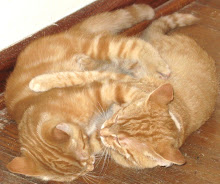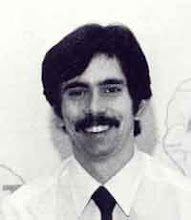#4 - GAMES
After exploring in class the following Emerging Technologies: a) Games, b) Interactive Whiteboard Activities, c) Simulations/Role Playing, & d) Virtual Reality/ Worlds (links found HERE), discuss whether or not you see a use for each of these four technologies. Then, pick two different, specific activities (a game, a simulation, an interactive whiteboard activity, or a Virtual Reality or World) and discuss in detail how it engages students in their own learning.
All four technologies have a place in my English classroom, assuming that I would have access to an Interactive Whiteboard. Games are great for introducing material and especially effective for reinforcing knowledge. With the use of a SMARTBoard and games, a class could be divided into groups or teams and compete for prizes. In these situations students have fun, are engaged in their learning, and would be moving academic content from the short-term to the long-term memory. With respect to Simulations/RolePlaying and Virtual RealityWorlds, for my purposes, I see these technologies as an option for students when doing projects. Many simulations and virtual worlds take a long time to set up and class time is precious and limited. Also, such activities are loved by some students and would be the right choice, and with other students, who are not that interested in simulations & virtual reality/worlds, it would be the wrong choice. I have used role playing often in the past, where students pretended to be someone else and acted, talked, or wrote as that person would, and those were effective role playing activites.
Two specific activities I experimented with today and enjoyed were the Rethinking Schools Middle East Map and the SAT Vocabulary practice. Although I was a high school English teacher, I would still have my students use the Middle East map to underscore that they are not as aware of the world they live in as they might think they might be. A tenet I believed in is that "truth often depends upon one's perspective," and in the challenging times we live in, I think all citizens need to understand people who may differ (ethnicly, culturally, etc.) so that we all have a better understanding of why events happen and what the effect of those events are ourselves as well as others. I would use the map in a competitive, fun way in class to illustrate how we need to be more aware of the world we live in. Also, I believe it is (and was) a good idea to do something completely different once in a while so the class and my students did not fall into a rut. With respect to the Vocabulary Practice, as a senior English teacher, most of my students were preparing for the ACT & SAT so the vocabulary quiz offers great prep for those college tests


